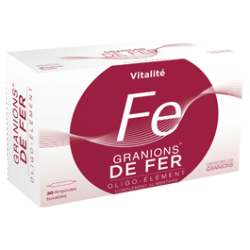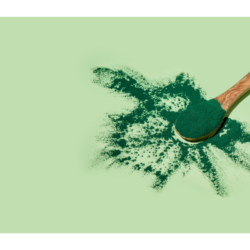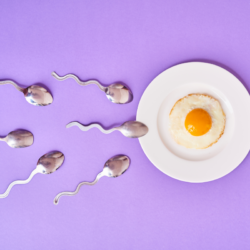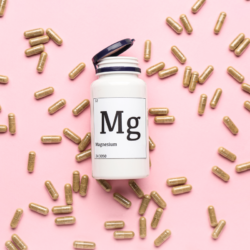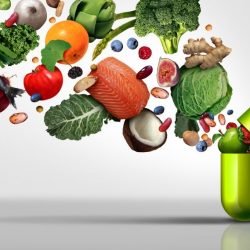Iron is an essential trace element, i.e. a substance that is present in small quantities within the organism and is indispensable for its proper functioning. Playing an important role in the Constitution of red blood cells, it is recognized for its benefits on the general vitality. Like all trace elements, iron is not synthesized in sufficient quantity by the organism, which is why the intake of daily food is fundamental. However, iron is mainly present in red meats, offal and dry vegetables, foods often consumed in insufficient quantities and whose contributions are dependent on a more or less good assimilation by the organism.
Who needs iron food supplements?
Any person whose traditional dietary intake is insufficient to bring the necessary iron level that the body needs will have an interest in taking iron food supplements. Iron is an essential mineral that contributes, among other things, to the proper functioning of the immune system, as well as to the formation of red blood cells. These cells contain hemoglobin-a protein that allows oxygen to be transported from the lungs to other parts of the body. Different studies, such as that carried out by the University of Lausanne showed that women of childbearing age as well as those who are pregnant most need iron and are therefore most likely to need to take this form of supplement Food. For women who have just finished their menopause (as well as for men of any age) the most common cause of iron deficiency is the loss of gastrointestinal blood caused by the absorption of drugs fighting inflammation as Aspirin and ibuprofen or by stomach ulcers. It is rare that the diet alone can take into account a lack of iron even if it is present in many common foods such as meat, fish, green vegetables, nuts and legumes. Some vegetarians can also benefit from iron supplements.
Recommended dietary intake of iron
| Recommended dietary intake of iron (source-5) | ||
| Age | Men | Women |
| From 0 to 6 months | 0.27 mg * | 0.27 mg * |
| From 7 to 12 months | 11 mg | 11 mg |
| From 1 to 3 years | 7 mg | 7 mg |
| From 4 to 8 years | 10 mg | 10 mg |
| From 9 to 13 years | 8 mg | 8 mg |
| From 14 to 18 years | 11 mg | 15 mg |
| From 19 to 50 years | 8 mg | 18 mg |
| More than 51 years | 8 mg | 8 mg |
| Pregnant women | – | 27 mg |
| Breastfeeding women | – | 9 mg (over 18 years) 10 mg (18 years and under) |
Iron deficiency.. You don’t have to be iron-free?
Insufficiency of iron can cause anemia whose symptoms include fatigue, paleness, palpitations, decreased intellectual performance (especially in children) or weakening of the function Immune. The risk of iron deficiency is higher among some people: for example, women of childbearing age (especially those with abundant rules), pregnant women, teenage girls, children in periods of growth (including between six months and Four years), vegans, female athletes, people suffering from digestive ulcers. The lack of iron intake can be diagnosed by dosing two blood proteins: hemoglobin and ferritin, a protein whose blood concentration allows to assess the state of the iron Organism’s reserves. Iron is also proposed to improve the physical performance of athletes, the intellectual performance of children and adolescents, as well as to combat fatigue.
What iron supplementation to choose?
There are two types of iron: iron of ferrous or heme origin and that of ferric or non-heme origin: The first is found in feed of original animal such as meat or fish. On the other hand, plants contain non-heme iron. The problem is that iron is a trace element difficult to absorb by the organism. It retains on average only one quarter of heme origin and only 1 to 10% of origin not heme. This makes the body more easily absorbing iron from meat than from cereals and vegetables. Note that the absorption of non-heme iron is largely influenced by the other nutrients consumed simultaneously: vitamin C (ascorbic acid) and certain substances present in meat (sulfur amino acids and peptides) facilitate Its absorption in the intestine, while certain substances contained in plants (phytate present in cereals and legumes, polyphenols present in fruits, vegetables, tea and wine) inhibit it. Many historical medicines offer iron supplementation at supraphysiological dose: The form used (sulphate or iron oxide in particular) is very poorly assimilated (less than 5%), explaining that the doses used are then important for the purpose To ensure a sufficient residual assimilation. Then begins a vicious circle: these forms of iron, often causing constipation and black stools, are responsible for an alteration of the intestinal mucosa, thus aggravating the long-term deficit. Some medicines also contain vitamin C: However, as we have mentioned, the synthetic form (ascorbic acid) does not allow the conversion into a well assimilated iron… There are today different forms of iron very well tolerated and well assimilated: The Iron bisglycinate is a chelated form, particularly interesting. The regulation of dietary supplements requires a maximum dosage of 12 mg/day, preferably outside a meal (no tolerance problem), for a long period of 3 to 6 months in general. Thus, do not wait to reach very low ferritin values to react… There are other well-assimilated iron forms, such as the previously mentioned iron-fortified spirulina (e.g. Végifer brand) or iron-based products associated with polysaccharides (Feramax in Quebec). The association with vitamin B12 can be justified in case of deficit in the latter. Vitamins B6 and B9 may also be involved (prefer the intake of vitamin B9 in the form of methylfolate). Similarly the association with copper is sometimes proposed, the latter involved in the transport of iron in the body. Attention however to excesses insofar as copper, like iron, proves to be pro-oxidative when taken in excess quantity.
Precautions to be taken with iron
The taking of iron supplements must be made under medical supervision. Indeed, iron accumulates in the body and its excess can cause serious intoxication: joint pain, diabetes, heart problems, cirrhosis of the liver, even cancers of the colon and rectum. Taking a massive dose of iron can also cause poisoning with liver and kidney disorders, shock and coma. For this reason, iron-rich supplements must be kept out of the reach of children. Ingested at moderate doses (less than 45 mg/day), iron can cause minor adverse events such as abdominal pain, constipation, diarrhea, black stool, nausea or vomiting. Attention, the taking of iron supplements can aggravate a peptic ulcer, as well as the symptoms of Crohn’s disease and ulcerative colitis. People suffering from chronic alcoholism should avoid taking iron supplements. Iron decreases the absorption of certain medications such as the antibiotics of the family cyclin and Quinolones, the treatment of osteoporosis or thyroid hormones. Respect a two-hour delay between the iron intake and the medication.
How to use and keep your food supplements iron?
Some foods and medications may affect your body’s ability to absorb iron. For best results, iron supplements should be taken when the stomach is still empty. However, this form of absorption can lead to stomach aches and some people prefer to take them after a meal. If it is your choice, be careful that the meal is low in dairy products as these can limit the effects of absorption of the iron food supplements. Tea and coffee should also be avoided for the same reason. Some foods containing vitamin C can help with good absorption. If you forget to take a dose, do not double the next one to compensate. If you are already under prescription for other products, check with your treating physician that iron-based dietary supplements will not have any side effects. Also consult your doctor if you are pregnant, if you are breastfeeding, if you are suffering from inflammation of the intestines or if you are under the age of 18. Keep your supplements in a cool, dry place away from children. Never exceed the recommended dosage.
Our favorite product
Iron Granions is a food supplement in the form of drinkable ampoules intended to bring an iron supplement. This dietary supplement is to be used in the context of a varied and balanced diet and a healthy lifestyle.
Sources
1-http://www.e-sante.fr/complements-alimentaires-base-fer-pas-importe-comment/actualite/1803?page=0%2C1
2-https://www.topsante.com/medecine/fatigue/antifatigue/manque-de-fer-607831
3-https://www.passeportsante.net/fr/Solutions/ PlantesSupplements/Fiche. aspx? doc = Fer_ps
4-https://eurekasante.vidal.fr/parapharmacie/complements-alimentaires/fer.html
5-* Source: Dietary Reference intakes for vitamin A, vitamin K, Arsenic, Boron, Chromium, Copper, Iodine, Iron, Manganese, Molybdenum, Nickel, Silicon, Vanadium, and Zinc, 2000. Food and Nutrition Board, Institute of Medicine. This data is the result of a consensus between the Canadian and American authorities. * In the absence of sufficient scientific data, the authorities have set, not a recommended dietary allowance (RDA), but a sufficient intake (as). Sufficient iron intake is based on the average intakes observed in healthy North American babies.


